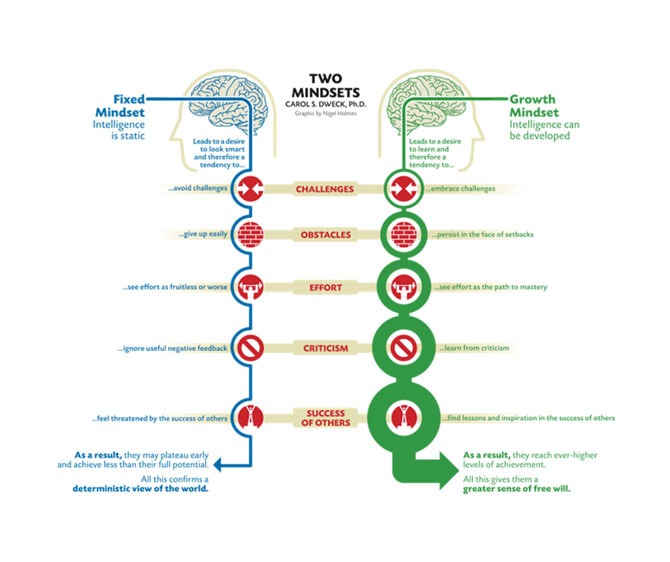
“I can’t do this.” “It’s too hard!” “Can we not have exams?”
Do these laments sound familiar?
After the recent mid-year examinations accompanied by a whole lot of tears, whining, complaining, I wonder if our children have had such a smooth sailing life they know not grit and perseverance. When the going gets tough, it is time to be tough.
How can we instil a growth mindset in our children? How do we teach them to have a “can-do” mindset?
What is Growth Mindset?
The term “growth mindset” stems from the work of Stanford psychologist Carol Dweck. It is based on the belief that anyone can change their aptitudes, interests, temperaments through some effort. Simply put, anyone can be anything. One’s true potential is unknown and it is impossible to foresee what can be accomplished with years of passion, hard work and perseverance.
The opposite of a growth mindset is a fixed mindset. This means one usually avoids challenges, gives up easily, sees efforts as fruitless, ignores feedback and feel threatened by the success of others.
Given how mastering a skill can often be challenging, children and even adults tend to have a “can’t do it” mindset. How do we then encourage our child to have a growth mindset?
Here are some tips I am still learning with my children.
Cultivating the Growth Mindset in Children
1. Positive Self-Talk

Since the mindset is important, the inner conversations both adults and children have in themselves are key. Parents need to have positive self-talk before they work on their child’s. Much of what we project on our child – from the nuances of our tone, our words, our expressions and unspoken body language, become our child’s inner voice.
Be positive and think “my child will improve with practice” or “my child can persevere and be the best he/she can be” rather than being dismissive and having preconceived notions about abilities. Remember that the growth mindset means “You can if you try”. As a parent, I tend to be overly critical and may see the weaknesses of my child much more, glossing over his strengths.
Focusing on strengths, improvement, efforts will help the child with his or her positive self-talk. Instead of abilities, we can change this mindset with positive change, growth and successful acquisition of skills.
2. Learn the power of the word “yet”
This three-letter word is a very powerful one and will change a fixed mindset to a growth mindset. When a task gets too challenging and the groaning starts with “I can”, try to encourage your child with “You may find it challenging now, but with more practice, you will surely master it! You can say “I can’t do it YET.”. This is a strong signal to your child with a parent’s affirmation, his and her abilities can be changed with hard work and practice.
Just a simple word will teach your child to persevere and be able to conquer difficult challenges. Next time you hear an “I don’t know, I cannot do this.”, remember the magical word “yet”.
3. Encouragements and Praise
Parents will need to be patient, affirming and praise their child accordingly. But the kind of praise has to focus not on talent or results, but the amount of hard work put in. Don’t praise the child for being smart, talented or clever but praise the child for his or her work ethic.
Research has shown that children who receive praise for their ability showed a more helpless response to failure while children who received praise for their effort showed they focused on remedies for failure such as new strategies. Children praised for “working hard”, “persevering”, “pressing on” showed more task persistence and were able to perform.
Parents can also share books and stories about resilience. I also like this book “Bubble Gum Brain” which is a very visual book that helps my 6 and 10-year-old understand growth mindset well.
5. Inspire with People who show a Growth Mindset
The Hoyt father-son pair, Malala Yousafzai or anyone with a growth mindset can inspire the little ones to have the same positive attitude towards learning as well. Showing films, books, videos about such figures to children can influence them.
More importantly, parents can model this behaviour and constantly put on that perception that their children can do anything and be anything, as long as they put their mind to it and work hard.
Cultivating the Growth Mindset in Children

Can we do it? Yes, we can, even if we cannot do it yet. With plenty of positive self-talk, appropriate praise, sharing of stories, inspiring our children, we can motivate them to keep trying. Let’s not limit the potential of our child but help expand their world of possibilities.

















